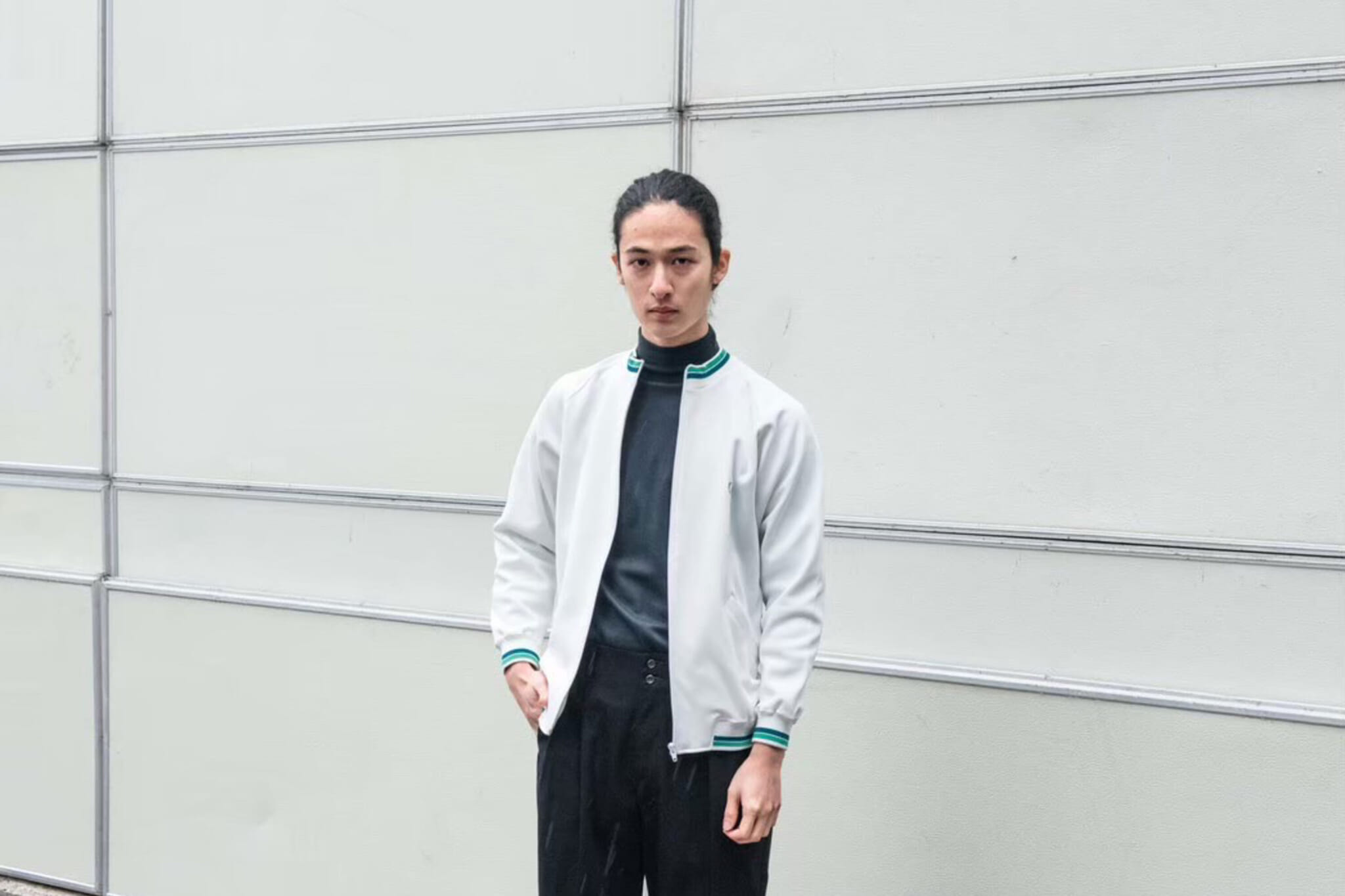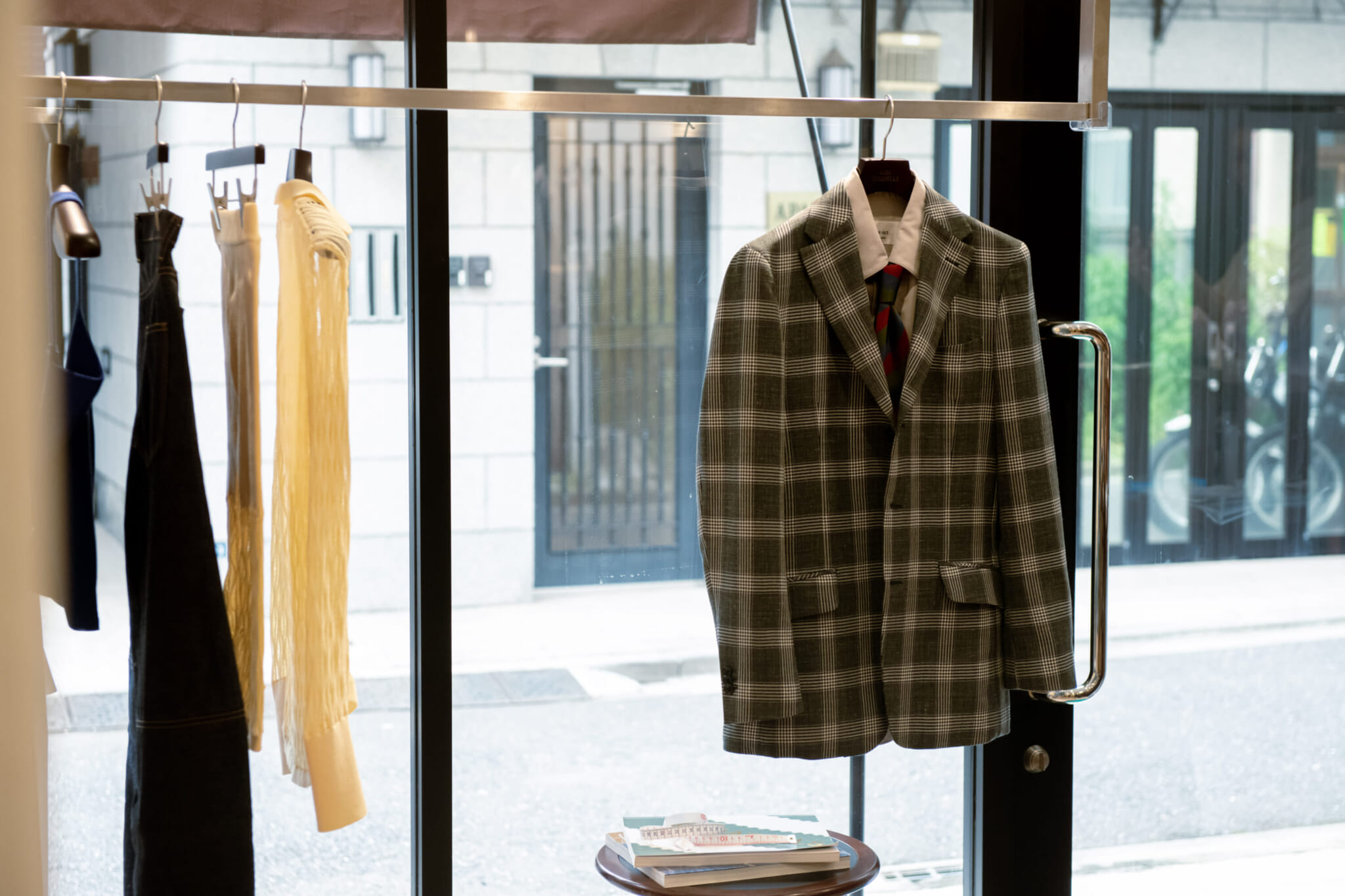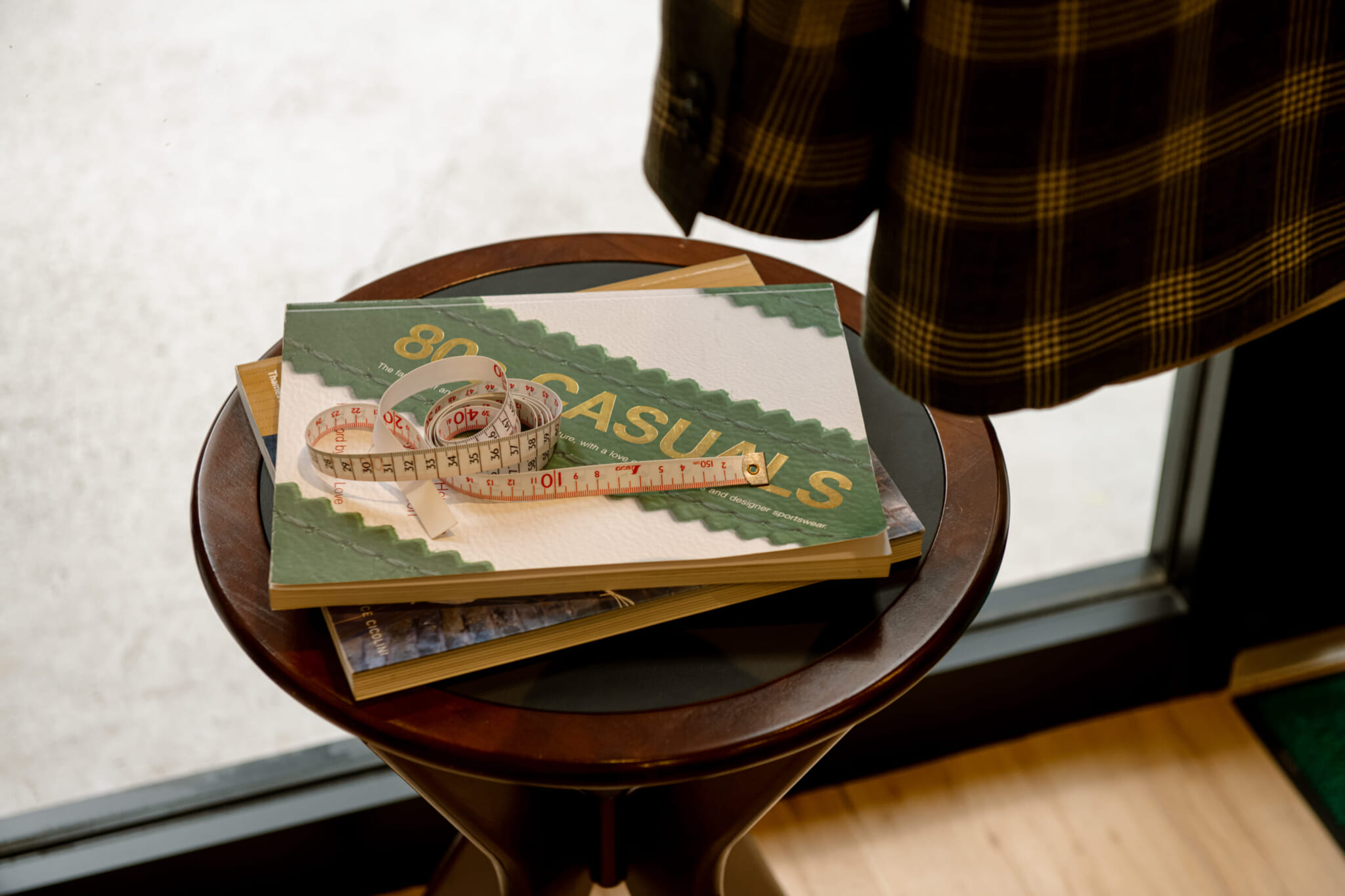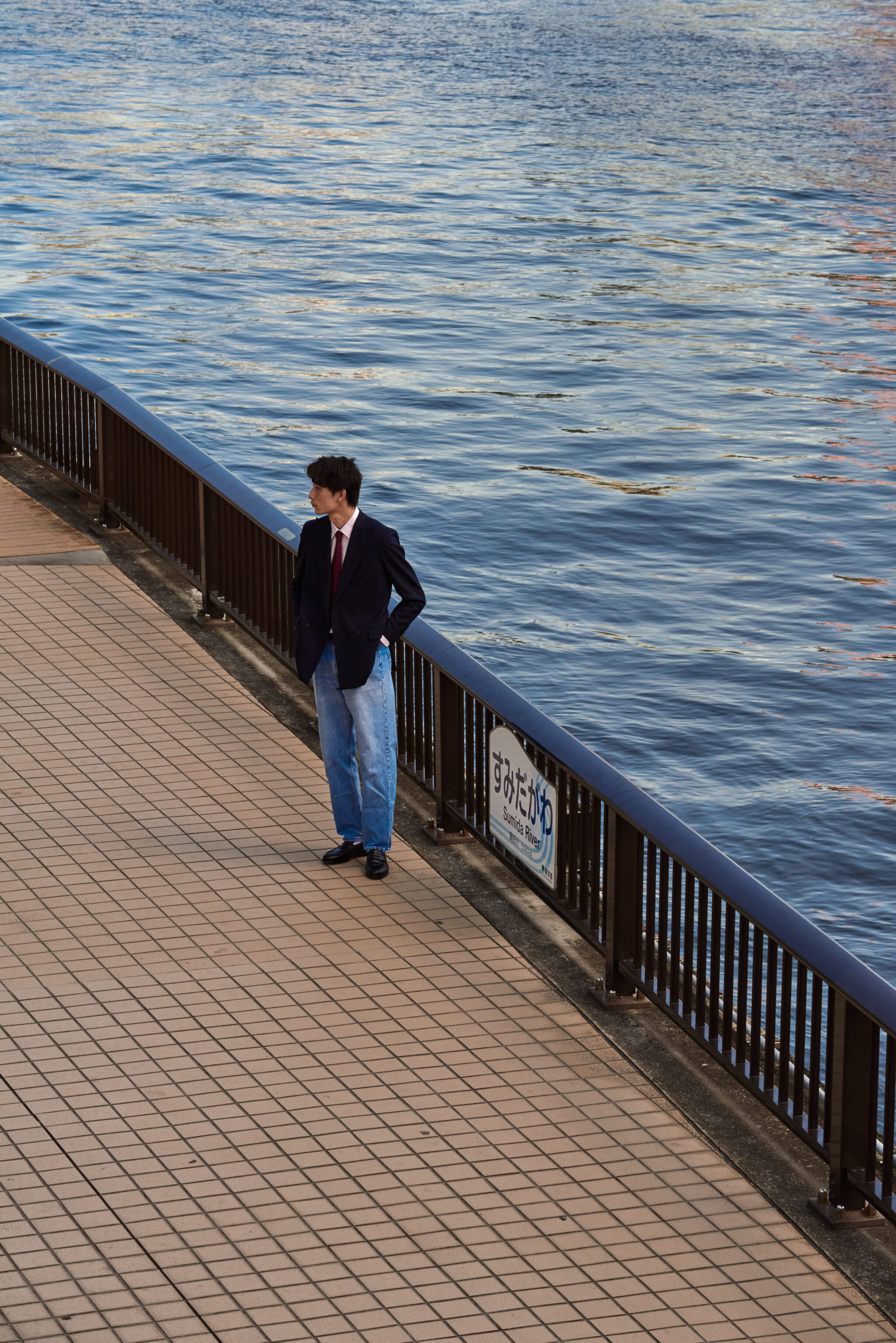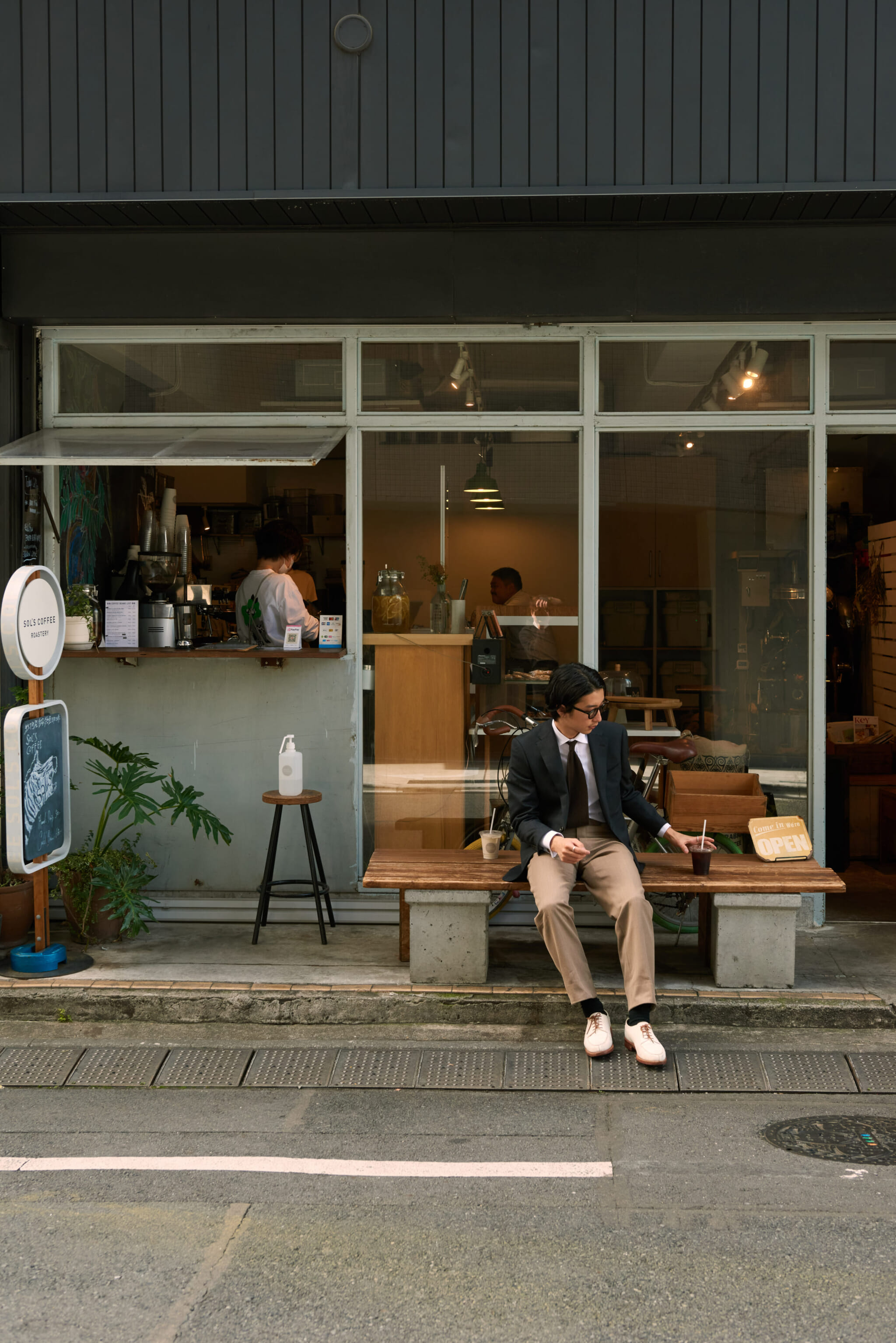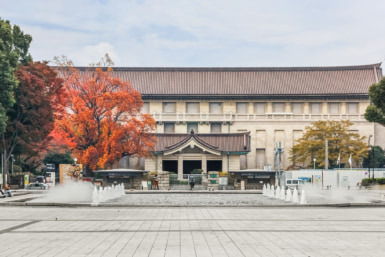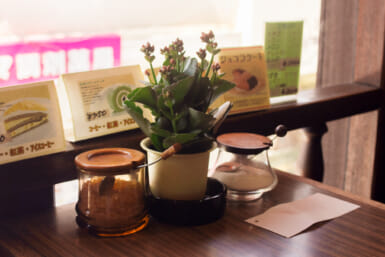Irvine Welsh’s seminal 1993 novel, Trainspotting, ostensibly changed British culture forever. From the incendiary first page, Scotland and being Scottish finally became cool, and the nation came out into cultural consciousness after decades in the cold. Adapted for film by Danny Boyle in 1996, Trainspotting became probably the defining movie and film soundtrack of the 1990s and changed the narrative of art, visuals, fashion and music for a generation.
In the backstreets of Asakusabashi, the style and vibrant youth culture inherent in Trainspotting is still alive and well and is being used as the main aesthetic influence for a new retail brand: Auba Jaconelli. Headed by 26-year-old Itsuki Hozumi, the store has become a hub for those interested in combining British casualwear with tailoring.
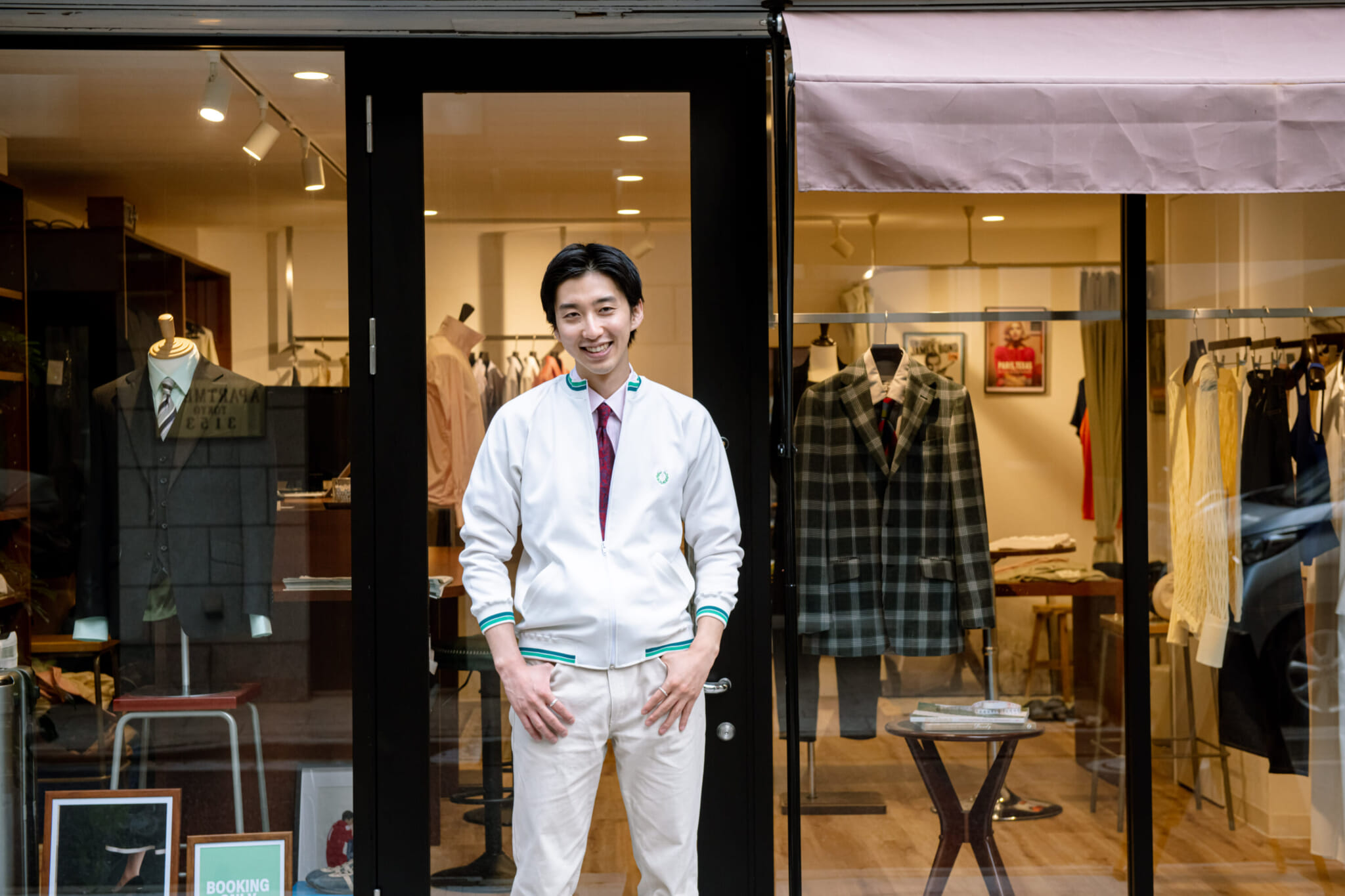
Bringing a Touch of Britain to Japan
I meet with Hozumi on a humid June afternoon at his charming space in Taito, a ward often overlooked and underrated, and we discuss the store, his background and his love for — and perhaps obsession with — British popular culture and fashion.
We kick off our chat with a question about nomenclature. I am honestly expecting a verbose and ambiguous answer, but the response is, instead, very simple and direct: “Auba” means “meeting place” in Japanese, and “Jaconelli” comes from the iconic Glaswegian eatery, Café D’Jaconelli, used as the setting for the scene in Trainspotting in which protagonists Renton and Spud discuss the latter’s upcoming job interview while slurping milkshakes and dabbing speed. He also adds that the name sounds like an imaginary soccer player. Hozumi explains that he liked the aesthetics and visuals of the café and believed it was an apt name for his store and brand.
Designers become involved in fashion in different ways. Some through fashion college (the majority in Japan through the prestigious Bunka Fashion College), others through music, sport or various subcultures. Hozumi, however, took a more unusual route, entering the world of fashion via a love of fashion magazines, a job in a clothing store and an interest in British culture.
“Actually, I didn’t go to fashion school,” says Hozumi. “I studied oceans at university! But I started to become interested in fashion when I was a student and admired various characters in films and magazines.” Hozumi goes on to explain that this interest took a serious turn only when he started working with a fashion brand and began researching men’s and women’s clothing.
“I read magazines like Uomo, Popeye, Brutus and Ginza,” he shares. “For films, Trainspotting, of course, and James Bond movies. I love Sean Connery’s style; he’s masculine but has a very beautiful elegance. And more recently, I really like the film Kingsman.”
Acing the Aesthetics
A peek around the Auba Jaconelli store makes it clear that this is a shrine and a cultural smorgasbord of Hozumi’s obsessions and a deep dive into his personality. Tracksuit tops, rows of tailored suits, books about British football hooligans and casuals, film posters of James Bond, Trainspotting and Paris, Texas adorn the interior. The Tokyo fashion retail scene can be brutal and competitive, but Hozumi seems comfortable and confident and is forging his own way in the industry.
Even the location is unorthodox and, for some perhaps, a major risk. “This is a nice area with old buildings and new restaurants and shops,” he says confidently. “So our store matches this concept. Mixed cultures and old and new. There are many kind people around here, and they are friendly. We wanted to get involved with the surrounding area and hold various events in the store with people from different backgrounds, such as illustrators and photographers. It’s really a meeting place, hence the name Auba.”
Auba Jaconelli, perhaps somewhat surprisingly, also stocks a very fine collection of womenswear. When I ask about a possible link or connection with Trainspotting, Hozumi shakes his head and points to the poster of Paris, Texas. “The inspiration, image and coloring for the collection of womenswear available comes from other films,” he says. “One of my favorite films is Paris, Texas — the coloring and styling are perfect. It also comes from British culture, especially Princess Diana and photos and articles about her.”
The Legacy of Trainspotting
Our discussion veers back, perhaps predictably, to Trainspotting and its cultural legacy. It’s no exaggeration to say that both the novel and film have had an overarching and hugely influential effect on a series of generations. Youngsters today are still finding Trainspotting and are drawn to its dark humor, its retro chic, its fusion of eras (the late ’70s, ’80s and ’90s), its visual and linguistic mastery, and for Hozumi, at least, its balanced and subversive styling and aesthetics.
“Trainspotting‘s styling, the fashion, the use of color and the use of size fittings, music and atmosphere — it’s a little dark but also a nice mix of pop and punk. The way fashion is mixed with tailoring and sportswear, especially seen in the character Spud. He wears a track jacket under a tailored jacket. The combination of each character and styling. For example, Begbie — he’s the coolest character, and I love his style.”
He continues, “Hibs is a collection I created of knitted V-neck sweaters that were made in Scotland. I was inspired by Begbie wearing a V-neck sweater in Trainspotting. They’re made from Shetland lambswool. It’s very classical. I love the silhouette and style, and the V-neck matches shirts very well, like Begbie.” The collection’s name is also inspired by Trainspotting and the fictional character, “Hibs” being a nickname for Hibernian F.C., a popular Edinburgh soccer team that counts Begbie among its fans.
Hozumi’s made-to-order suits, T-shirts, trousers and a very carefully curated selection of other domestic brands have seen him amass a loyal and growing fanbase. It’s not Aoyama or Omotesando, but Asakusabashi has its own charms and appeal. Hozumi’s ambition and infectious personality, as well as his role as fashion curator and businessman, will surely gain him even more fans and admiration.
As for the cult of Trainspotting? In a 2016 article for Dazed Digital, Tom Rasmussen writes, “The film has also maintained a strong sartorial legacy: who could forget the widespread moral panic surrounding the film’s popularization of the ‘heroin chic’ archetype? More specifically, several designers still make aesthetic choices informed (consciously or subconsciously) by the film and its resulting impact: see Vetements, Gosha, Liam Hodges, and even Wang for Balenciaga menswear. Twenty years on, there’s an undeniable authenticity to Trainspotting that will continue to resonate with outsiders in generations to come.”
Find the shop online and on Instagram at @auba_jaconelli.

